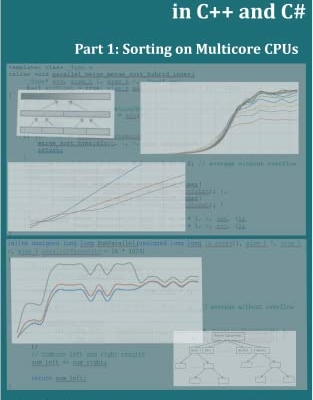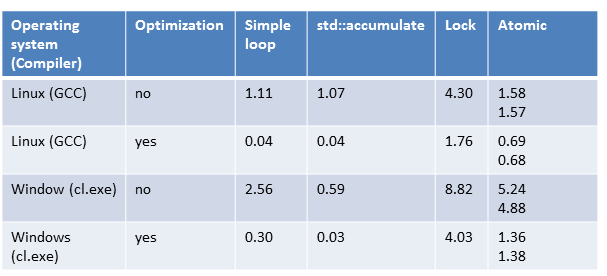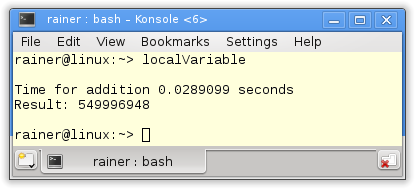Posts

C++ Parallel STL Benchmark
Today, I'm happy to present a guest post from Victor J. Duvanenko about my favorite C++17 feature: the…

C++ Core Guidelines: Improved Performance with Iostreams
/
0 Comments
As easy as my title and the rules of the C++ core guidelines sound, getting more performance out of the…

C++ Core Guidelines: Avoid Bounds Errors
When you access an element outside a container of the STL, the result is not so promising. Your effect…

More special Friends with std::map and std::unordered_map
Modern C++ has eight associative containers, but your special friends should be std::map and std::unordered_map.…

C++ Core Guidelines: std::array and std::vector are your Friends
In 99 % of your use cases for a sequential container, you are outstanding with a std::array or a std::vector.…

C++ Core Guidelines: The Remaining Rules about Performance
Today, I will write about the remaining ten rules of performance. Ten rules seem to be a lot, but only…

C++ Core Guidelines: More Rules about Performance
In this post, I continue my journey through the rules to performance in the C++ Core Guidelines. …

C++ Core Guidelines: Rules about Performance
Before I write about the rules of performance, I will do a straightforward job. Accessing the elements…

My Conclusion: Summation of a Vector in three Variants
After I've calculated in three different ways the sum of a std::vector I want to draw my conclusions.
The…

Multithreaded: Summation with Minimal Synchronization
Until now, I've used two strategies to summate a std::vector. First, I did the whole math in one thread…
